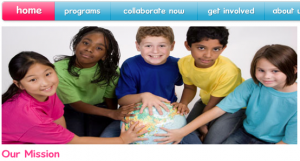By Sara Bernard
The Internet is crammed with collaborative projects for kids, from music-making to drawing, mashups to Wikis, "pen" pal partnerships to citizen science. Some sites are designed specifically for students and teachers to connect across oceans; some just work well for that. The good news is that while some sites charge fees, most of those offer free accounts to the education community.
Web 2.0 offers a whole new way to conceive of the "group project" (or classroom, for that matter). This particular list is hardly exhaustive -- it's more like the snowflake on the tip of the iceberg. But it could help get educators, parents, and students started on something fun -- and, of course, educational.
Global SchoolNet - A veritable smorgasbord of education-focused collaborative projects from a decades-old nonprofit organization. Doors to Diplomacy, for instance, is an international competition that encourages middle and high school students to teach others about the value of international affairs by creating a collaborative, research-based website.


